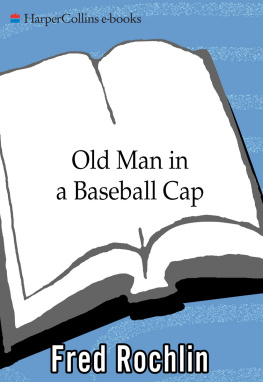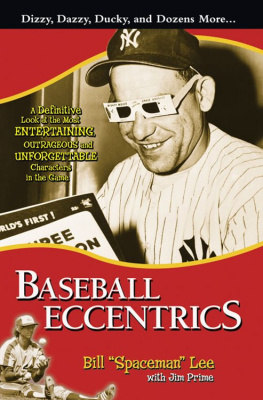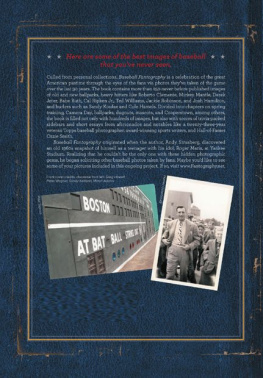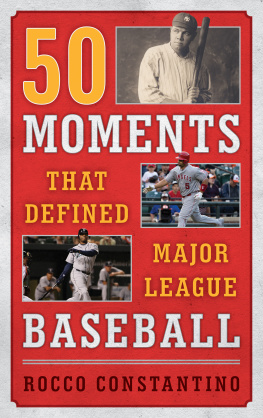S O MANY PEOPLE HAVE BEEN generous, helpful, encouraging, and gracious to me in regard to this work and my theatrical performances.
My profoundest respect and thanks to Laurie Lathem for her direction, patience, sensitivity, and strength.
Thanks to Larry Ashmead, Allison McCabe, Michael Dixon, Valerie Smith, Bruce Weber, Karen DSouza, Jennifer Poyen, Marilyn Johnson, Mary Jane Ufland, Harry Ufland, Allison Gregory, Steven Dietz, Peter Matson, Jens Hansen, Paul Stager, Larry Silverton, Spalding Gray, Carmen Ulloa.
Thanks to the great people at MacDowell Colony, Highways Performance Space, Actors Theatre of Louisville, B Street Theatre, Emelin Theatre, Peterborough Playhouse, La Jolla Playhouse, Playwrights Kitchen Ensemble.
My deepest gratitude is due my wife, Harriet, and our offspring, Judith, Davida, Margy, and Michael, for their unstinting support.
T HERE ARE A LOT OF OLD GUYS around out there in their seventies and eighties. Im one of them. Some of us went through a lot of stuff that we have been unable to talk about. We are in the last decade of our lives and sometimes we worry about our approaching oblivion. We are part of that generation that was raised and trained to repress their feelings or to deny and try to forget so many things that occurred.
Everybody has a story. I believe everyones story is important; should be told, retold, written and recorded. If there are, say, five billion people on this planet, then yes, I think there should be five billion stories told.
We all go through a struggle, the path of our lives. I call it La gran lucha. The great contest. The ultimate wrestling match.
The stories in this book were written to be performed as monologues in a theater. As such, a purpose was to hold the audiences attention, to entertain and to illuminate. Hopefully, the audience would be moved into thinking about their own lives, their own struggle.
My country, the United States, was involved in this epic fight in Europe called World War II from December 1941 until May 1945. In these stories, I try to show the small personal feelings of a young man tossed against all the other stuff that was going on.
When I meet other old guys who had experiences similar to mine, Im dazzled by what they say. We are often so inaccurate. We remember what we want to remember. We deny what we choose to deny. We have become a generation of storytellers fixed on that period of time when many of us were so young, experienced so much, were so scared and traumatized.
My memory of those times is a blur. I dont remember places, dates, or even what happened with any kind of exactness. The older I get, the more I remember things that never happened.
The stories that are written here come out of my experiences and are in my own voice. I do want the reader to understand what Im trying to express. Look, from my perspective, we just get one shot at life. Dont piss it away. Thats all Im trying to say. Tell your story. Tell your story.
I N DECEMBER 1942, I FINISHED my cadet training, was commissioned a second lieutenant, and was ordered to Mather Field near Sacramento, California, to meet the crew I was to be assigned to.
We were to take an eighteen-week training course in practice bombing, formation flying, aerial gunnery, and navigation, and do all the stuff that you have to learn to get ready for combat.
We started training flying the very next day, and the first week, we just flew all over the United States, dropping bombs on bombing ranges, practicing formation flying, aerial gunnery, weird navigation exercises; we did very well, so well that, by the end of the first ten days, we were the hottest crew on the base and had the best record in everything.
Shorty Haden, the bombardier, was my roommate at the BOQ, the Bachelor Officers Quarters, and we got to be really good friends. We were about the same age, and wed just talk and talk and talk.
When we werent flying, all the guys would get off the base, go to Sacramento or San Francisco to try to pick up girls or at least get drunk. Kind of relax, try and have a good time, you know, what guys are supposed to do.
Well, not Shorty, hed go to town and spend quite a bit of time in church. He was very religious and then hed go and haunt these little antique shops.
The first Saturday we had off, we all went to the Wagon Wheel Hotel in town. Shorty said hed meet us back at the base later.
I got in about midnight, and Shorty was there still awake and waiting for me and he was just gushing, alive with excitement, and he said, Oh, youll never guess what I found today.
I said, What?
And he said, Look here, and he opened the lid to his foot locker and there were his clothes and three little cups and saucers.
So I said, Look at what?
He blurted, At these, at these, and he took out those little cups and saucers and said, Arent they just precious? Can you believe this one is a genuine Worcester, late eighteenth century? Can you believe how lucky I am? Arent you jealous? And this is a Miessen, and this is turn-of-the-century Wedgwood, not really rare but still very nice.
I tried to be enthusiastic, I didnt want to be a wet blanket.
I said, Swell. Whered you find them?
He said, Sacramento is just a gold mine, no one here knows what theyre worth.
Yeah, what they cost.
Only eighty-five dollars.
I said, Jesus, thats half a months pay.
He said, Yes, but theyre worth five times that, these are museum pieces. Oh, my mother will be thrilled when she gets these. And I have to borrow fifty dollars from you till payday.
Well, I thought, This guy is a nut case, but what could I do, so I said, Sure.
The next night, he took my fifty dollars, went to the Officers Club, got into a poker game and won one hundred twenty-five bucks. Then he paid me back the dough he owed me, got in another poker game and won two hundred dollars and change. Then he went to Sacramento and brought back a whole mess load of those damn little cups.
So I said, Shorty, what are you going to do with all those damn little cups and whered you learn how to play poker so well?
Shorty said that he was an only child and his mother was a widow and she loved these little cups, had a collection of them, and she and Shorty studied about porcelain almost every evening after school when he was home. He knew all about Spode, and Rockingham and Royal Danish, and St. Ives, and Rouen and Lowestoft, and every other damn cup.
And he said, And everybody in Jefferson City plays poker and its not too hard to win if you understand how, just be patient, dont be afraid to fold, play the odds, only bet on the good hands, and the most important thing, dont expect God to intervene to make you win.
He thought the guys at the Officers Club were nice guys, but just didnt know anything about playing poker.
So I figured Shorty wasnt so nuts after all, he just had the hots for little cups, okay? Look, it takes all kinds of guys.
After three weeks Major Ferguson, the chief training officer, called in the whole crew. We were worried, didnt know if we were in some kind of trouble.
Major Ferguson said, Your crew has been here three weeks and youve got the best performance record of any crew on the base. Do you men feel youre ready for combat? Do you think you can fly fifty combat missions?











